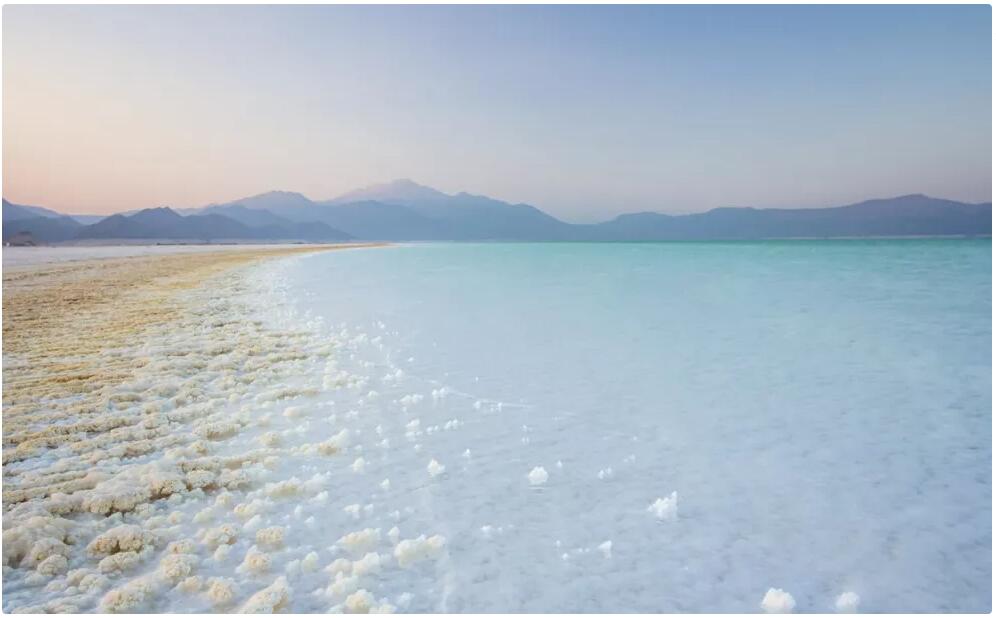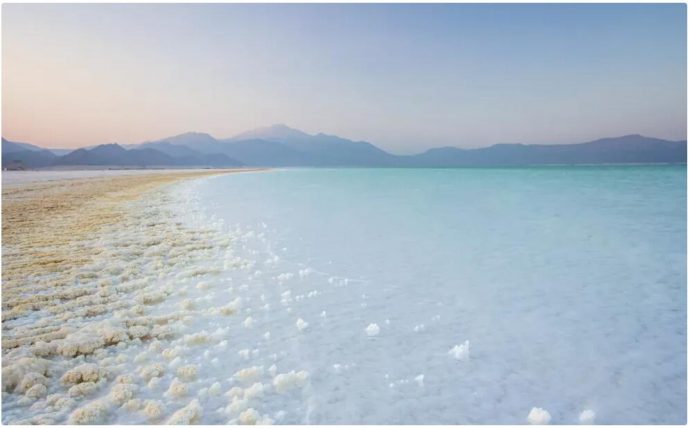The Republic of Djibouti is a small country in eastern Africa on the Gulf of Aden and the Red Sea. It borders Ethiopia and Eritrea. Two thirds of the country’s population live in the capital, Djibouti City. In 1891 the French made Djibouti the capital of French Somaliland. Djibouti gained its independence from France in 1977. The country has around 850,000 inhabitants, about 60% Somali and 35% Afar. The residents of Djibouti City are predominantly Muslim.
According to neovideogames, Djibouti is not a very popular travel destination . It has some interesting sights, but is relatively expensive and perhaps has less to offer than neighboring Ethiopia. Its reputation as a nation of Kath addicts does not help the country look better either. For all those who always like to go off the beaten track, spend some time in Djibouti, get to know the people, try the food and enjoy the warm ocean, will like Djibouti after a short time.
Djibouti still has close ties with France and with a basic knowledge of French you will get quite a long way in the capital. The US Army also has a base in the city, so don’t be surprised if you see US soldiers in the city. Due to the geographical location, other countries also use the location to ward off Solamian pirates.
Assalsee
The Lake Assal in Djibouti is a crater lake at the western end of the Gulf of Tadjoura. It is 155 m below sea level, making it the lowest point in Africa and the third lowest point on earth after the Dead Sea and the Sea of Galilee. The lake has no natural runoff, the water is fed underground and the high level of evaporation results in a high salt content.
The lake has been declared a protected area by the government. Since the borders of the lake are not clearly regulated and the salt of the lake is being exploited, there is a need for action to stop this exploitation. The government of Djibouti has therefore submitted the proposal to UNESCO to include the area around Lake Assal and Ardoukoba volcano in the list of world cultural heritage.
The Lake Assal (80 km west of the capital Djibouti City) is not only the saltiest water in the world, he also has a 7% higher salinity than the Dead Sea. It is only known to a few people and is still absolutely unique.
Climate in Djibouti City
The maximum temperature in Djibouti is 41 ° C in July and August. In January the thermometer rises to a maximum of 28 ° C. The summer (June to September) with average 40 ° C hot . In the winter months it is around 29 ° C very warm . During the day, the average annual temperature in Djibouti is a hot 33.6 ° C.
At night it gets coldest with 21 ° C in January and December. The thermometer rarely falls below 31 ° C in July. While the nights in summer are averages of a very warm 30 ° C, the thermometer drops to a pleasantly warm 22 ° C between November and March. The temperature at night is an average of 25.4 ° C throughout the year.
The water temperature is up to 29 ° C, in January and February the sea has a maximum of 25 ° C. In the summer months from June to September the water is very warm with an average of 29 ° C. Between November and March the values are a very warm 26 ° C. Over the year, the sea has an average temperature of 27.8 ° C.
With only 3 rainy days, February is the rainiest month of the year. The June and September are with 0 per rainy days the driest months of the year . From June to September Djibouti is extremely dry with an average of only 1 rainy day each, the winter (November to March) is very dry with only 2 rainy days. On an annual average, rain falls on only 1.3 days per month.
Food and drink
The food in Djibouti ranges from French haute cuisine in chic restaurants to the typical North African dishes that can be found on the streets. In general there is a good selection of dishes and holidaymakers have no problem finding tasty and rich food. Popular ingredients include lentils, fried meat (especially chicken), and unleavened bread. Baked or grilled fish from the Red Sea is prepared in a local way and usually served with a spicy sauce. Even if you can have drinks, a teetotaler would be the ideal travel profile for a vacationer in Djibouti.
Alcohol is not available everywhere and drinking is not a social activity in this Islamic country. The alternative is the Kath plant, which grows in the highlands and acts as a mild stimulant.
Useful travel tips
Bring enough cash with you when traveling to Djibouti as there are few banks and ATMs. You can get a lot further with French than with English. Bring sunscreen, sunglasses, bug spray and a hat. Most shops and offices are closed between 1 p.m. and 4 p.m. to avoid the midday heat.

